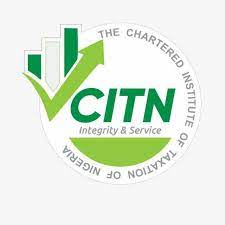By Henry Uche
Chartered Institute of Taxation of Nigeria (CITN) says it foresees improve food availability, reduced cost-push inflation, enhanced public trust and other forms of support for millions of Nigerians, following the elimination of illegal roadblocks and harmonisation of levies imposed on the transportation of agricultural produce across Nigerian states.
The President/Chairman of Council of the Institute, Mr. Innocent Ohagwa, in a statement, commended the recent resolution of the Nigeria Governors’ Forum (NGF), noting that if uniformly implemented across all states, would improve the welfare and wellbeing of Nigerians.
“The resolution, which follows a detailed briefing by the National Security Adviser and key ministers on the implications of checkpoint proliferation and unregulated taxation, is a step in the right direction towards improving the food supply chain and addressing food inflation—reported at 21.14% in May 2025, an increase of 2.19% compared to the previous month”
CITN President commended the NGF for recognising the role that fiscal coordination and administrative streamlining play in achieving national development objectives. The Institute maintained that it has been established that the widespread imposition of illegal levies and multiple taxes on agricultural transportation had disrupted supply chains and adversely impacted food affordability across the nation.
“We urge the state governors to closely monitor their local government chairmen and the chairmen of Internal Revenue Service of their states, to ensure the full implementation of the directive. The Executive Secretary of the Joint Tax Board should liaise with the Inspector-General of Police to implement this directive.
“The governors on their own part too, should ensure the implementation of statutory allocation of the required percentage of the State Internally Generated Revenue to their local government councils in order to cushion the funding pressure on the local government ouncils.”
Ohagwa reiterated the Institute’s advocacy against multiplicity of taxes and unregulated collection practices as the professional body statutorily empowered to regulate tax practice in Nigeria. “These practices increase compliance burdens, discourage investment, and ultimately result in revenue losses for the government.
“We call on all tiers of government to continuously implement people-centred reforms that will improve the standard of living, reduce the cost of doing business, and foster inclusive economic growth.”


















Leave a comment